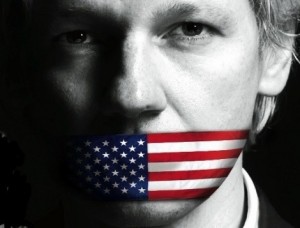Sexual assault is a very serious matter. Any violence is serious.
Recently, a very skilled professional hockey player, Patrick Kane of the NHL’s Chicago Blackhawks, made headlines because of his being alleged to have committed sexual assault against a woman. The woman who was allegedly the victim had her identity protected – as should be the case. But what about the alleged perpetrator who is now known to all followers of hockey and other news?
TSN reported, “People may not look at Kane the same way after this, even without prosecution but, on the ice, he’s had an exceptional start to the season.”
The District Attorney dropped the case and did not proceed to prosecution. It was further reported that authorities found the woman’s allegations too questionable to proceed with charges.
Kane was entitled to presumption of innocence, like anyone under suspicion of a crime, until tried and determined to be guilty of a crime. Is this, however, sufficient?
Is one not entitled to protection against attacks that impugn the integrity of one’s character? Especially against willy nilly charges?
Kane will always in some eyes, rightly or wrongly, carry whatever stigma is attached to having being named as an alleged perpetrator of a sexual assault. Some might argue that if he indeed was guilty and escaped justice, then at least in some measure there was justice in his being named. This is flawed in at least two respects. First, to argue this is to denigrate the presumption of innocence. Second, it allows for people genuinely innocent to suffer unjustly the consequences of public disclosure.
In a sense Kane is now a victim, although he has never even been charged or found guilty of an alleged offense. And Kane is not alone in the naming and perceived shaming. Kane has family and loved ones who were presumably exposed to unwanted attention, curiosity, and probing questions.
The identity of an alleged perpetrator should never be revealed – or allowed to be reported by media – until justice has determined a person to be guilty.
 The naming of an alleged perpetrator is not justice. It is an abuse of judicial proceedings. Julian Assange is a quintessential example of an abuse of justice, and he is still paying the price. Assange is a victim of the state. In his case, the criminal actions of Britain and Sweden in collusion with the United States.
The naming of an alleged perpetrator is not justice. It is an abuse of judicial proceedings. Julian Assange is a quintessential example of an abuse of justice, and he is still paying the price. Assange is a victim of the state. In his case, the criminal actions of Britain and Sweden in collusion with the United States.
Kane said at the outset: “While I have too much respect for the legal process to comment on an ongoing matter, I am confident once all the facts are brought to light I will be absolved of having done [anything] wrong.”
The facts have no bearing on the case of Assange. Assange is persecuted for bringing light to the actions of states that prefer to act in the shadows. Assange is a victim of state violence.
Any violence is serious. The use of violence is usually a cowardly choice. One usually employs violence against those one is not overly threatened by or when a victim is caught unawares. Adults against children, men against women, large people against small people, large nation states with advanced weaponry against small nation states or nations with inferior weaponry.
The ultimate cowardly bullying, however, is when the might of the state is arrayed against an individual, presumption of innocence/proof of innocence be damned.










